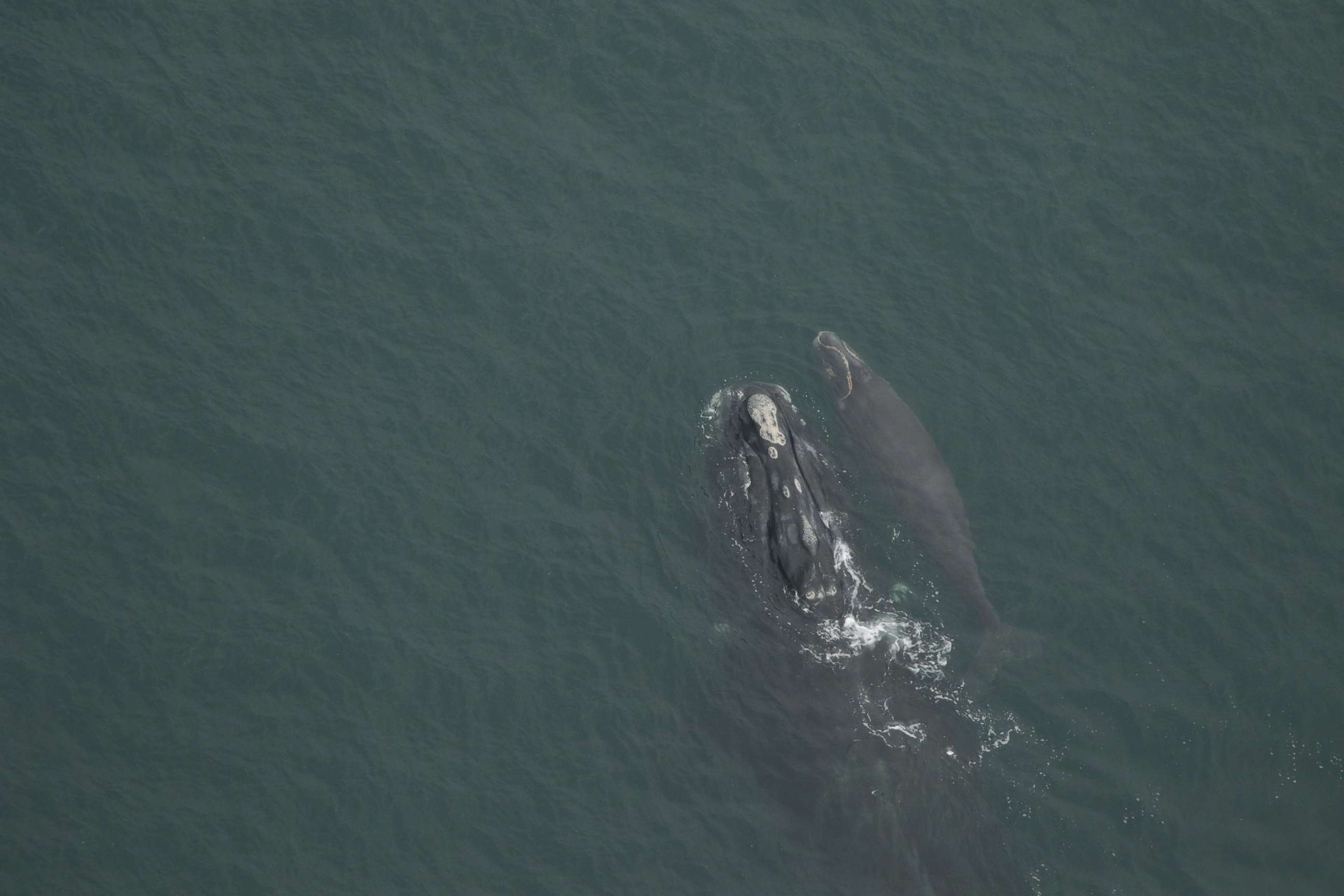Number of critically endangered North Atlantic right whale calves grows to 11 after 2 spotted off Florida coast
Just 22 calves were born in the previous four seasons.
Recent sightings of the critically endangered North Atlantic right whale is giving conservationists new hope on the survival of the species.
Two more calves have been spotted off the coast of Amelia Island in Florida, increasing the total number of calves seen this season to 11, according to the National Oceanic and Atmospheric Administration.
The calves have been born to a 13-year-old whale named "Bocce" and a 20-year-old whale identified as "#3130."
The news is welcome for conservationists, as only 22 births have occurred in the previous four calving seasons combined, and the first calf of the season washed up dead on a barrier island off North Carolina in November, according to NOAA.
The population has struggled with high mortality and poor reproduction over the last decade.
Among the biggest threats to the species include ship collisions, entanglement in fishing gear, habitat degradation, climate and ecosystem change, disturbance from whale-watching activities and noise, according to the NOAA. The species has a protection zone of 500 yards, NOAA regulations state.

North Atlantic right whales are among the most endangered of the world's large whales, according to the Florida Fish and Wildlife Conservation Commission.
In July, the International Union for Conservation of Nature moved the North Atlantic right whale to critically endangered on its Red List of Threatened Species. NOAA announced in October that the population had dipped from an estimated 412 in January 2018 to 366.
Last week, several conservation groups filed a lawsuit against the federal government, accusing the National Marine Fisheries Service of ignoring petitions seeking greater speed limit restrictions along the East Coast for eight years.




